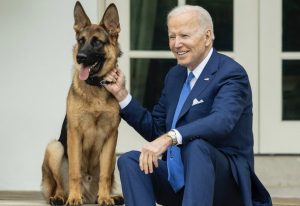Looks like Indian military dogs will soon be able to
assist India’s pandemic response team as the Indian Army is training them for
quick detection of COVID-19 infection to cut down time delays associated with
regular diagnostic process, reports PTI.
According to senior Army officials, the dogs are doing
so by sniffing urine and sweat samples of individuals.
Also Read: Government to sign Rs 48,000 crore Tejas aircraft deal on Wednesday
The chief dogs for the job are two-year-old Casper,
who is a cocker spaniel and one-year-old Jaya, a ‘chippiparai’, which is an
indigenous breed from Tamil Nadu.
A run through of Jaya and Casper’s skills was held with real samples on Tuesday in the premises of the 48 Military Veterinary Hospital at Delhi Cantonment.
Here’s a video from their COVID-19 detection trial.
In the video, the handlers can be seen wearing a PPE kit while the dogs perform their task.
The canine members of the Indian armed forces are used for their olfactory qualities and they have earlier facilitated in explosive and narcotics detection, search and rescue operations, and other challenging tasks.
Also Read: Watch| Sleepy pups listen keenly to a lullaby
Citing examples of countries like UK, Finland, France, Russia, Germany who are already using dogs for COVID-19 detection, Lt Col Surinder Saini, instructor at the Dog Training Facility of the Remount Veterinary Corps (RVC) Centre in Meerut said, “Dogs have been previously used abroad to detect malaria, diabetes and
Parkinson’s disease, but this is the first time canines have been used for
medical detection in India.”
On being asked whether the dogs are being deployed, Saini said that
after their training in September, the dogs were deployed at the Army’s transit
camp in Delhi in November. From December, they have been deployed at the
transit camp in Chandigarh from where troops move to large areas, including the
Ladakh region, under the North Command.
In addition to Jaya and Casper, one-year-old Mani, another chippiparai dog is undergoing
training for virus detection.
Also Read: Pug dressed in traditional Malayali outfit gets marriage proposals online
The dogs are being trained on specific
biomarkers emanating from urine and sweat samples of positive patients. The training includes making the dogs sniff the sample and sit near the sample if it is positive for the disease and move forward if it is negative.
Saini also revealed that samples do not contain
living virus, but only volatile metabolic biomarkers, which the dogs have been
trained to detect.
These training dogs are constantly being monitored by their handlers,
and their body temperature is recorded in the morning and the evening, the
officials said.






